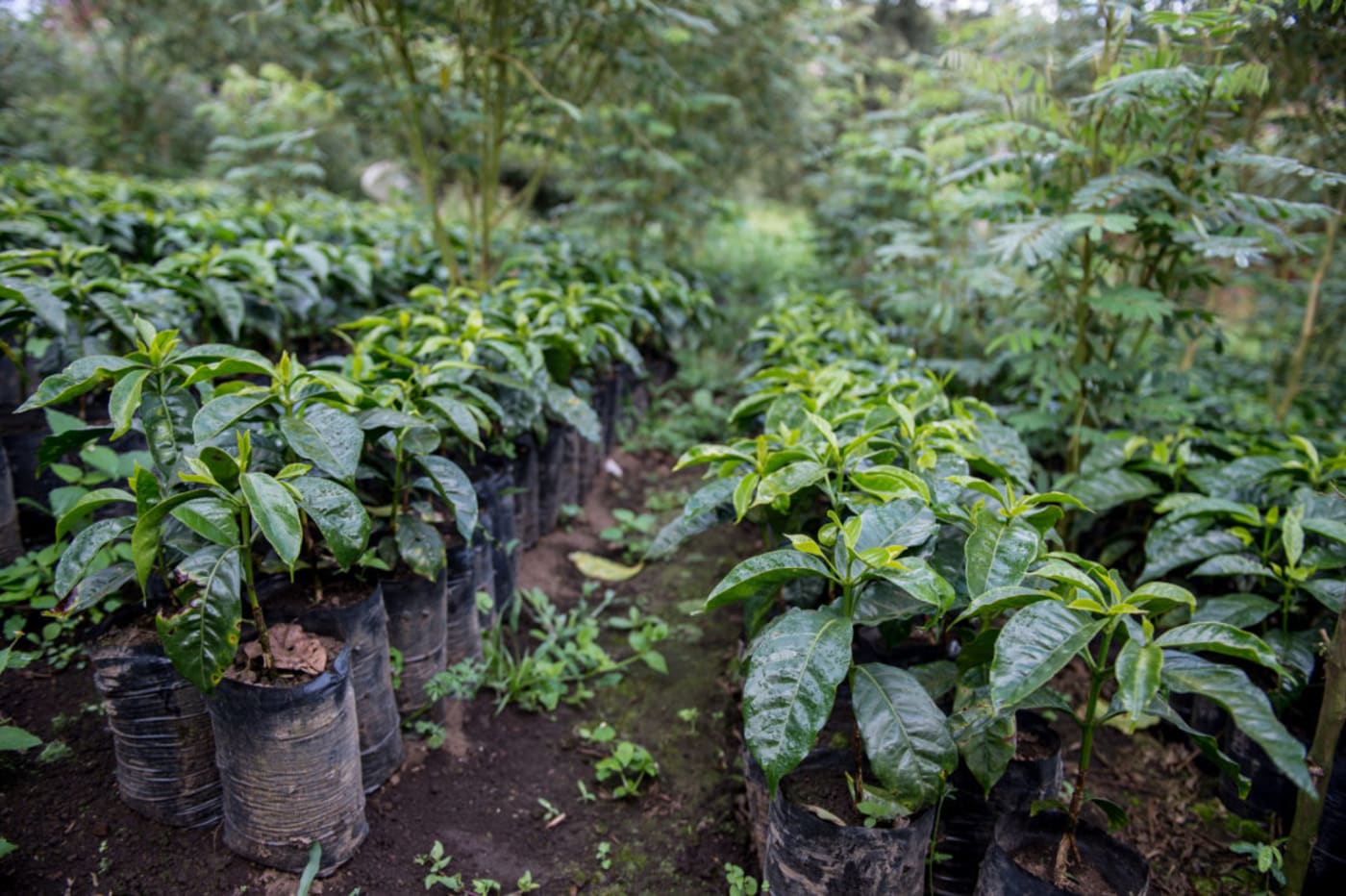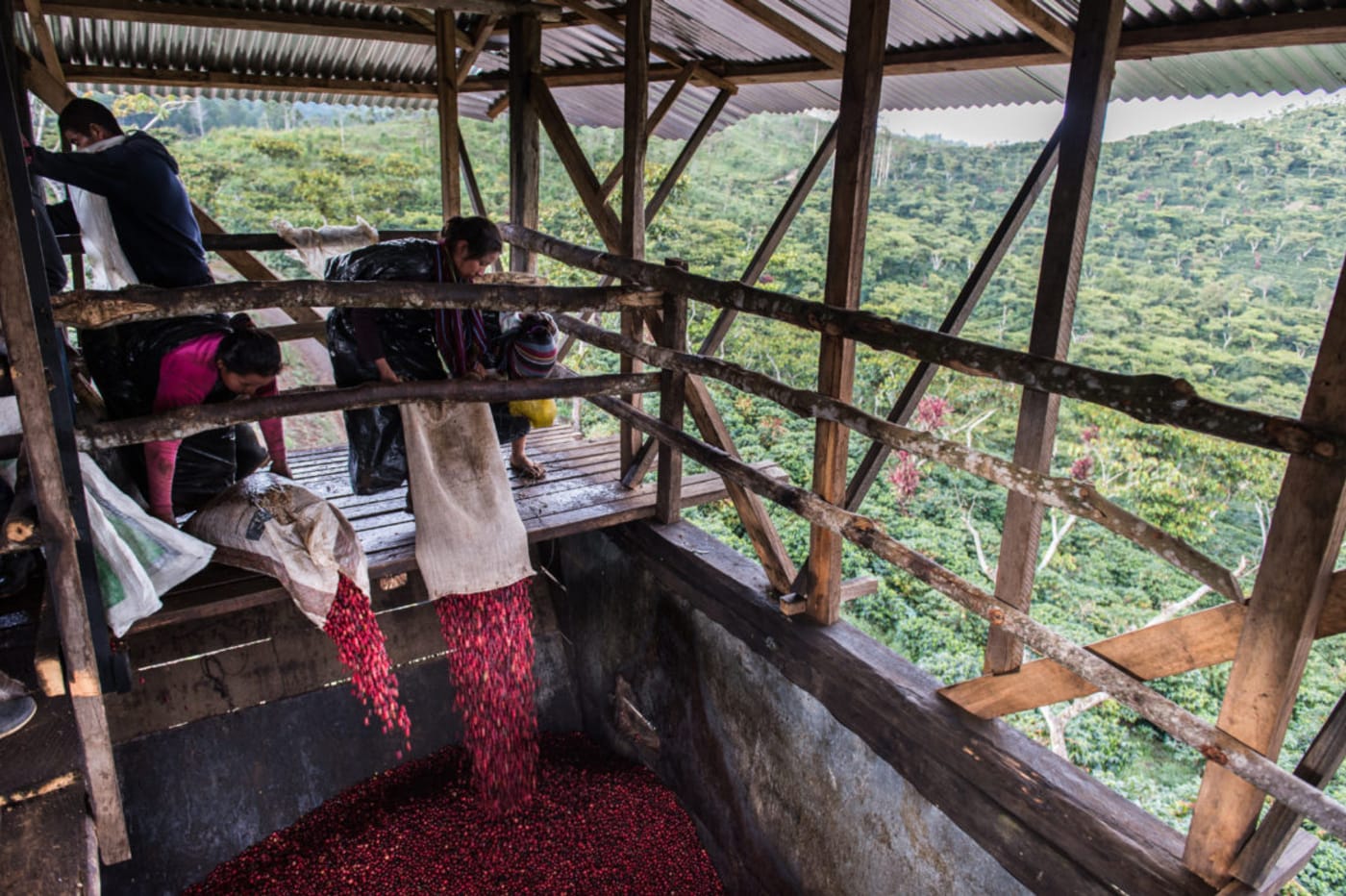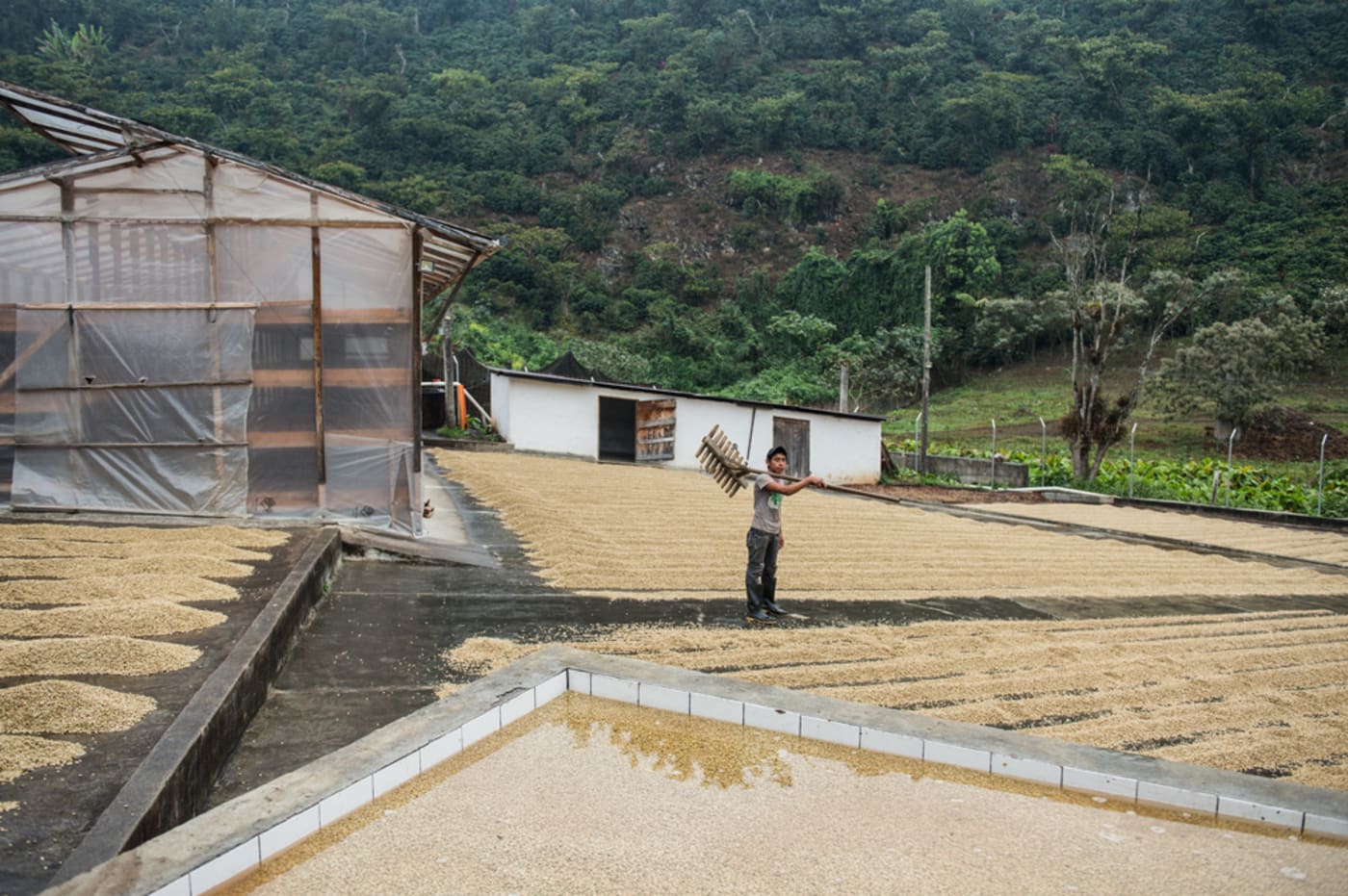A microlot made of the most floral cherries of Santa Isabel’s estate, and named to honour its taste—Las Flores, which means ‘the flowers’ in Spanish.
This coffee is a special selection from Santa Isabel farm, an estate Melbourne Coffee Merchants has worked with since 2011. Each day lot that was processed at the farm was cupped, and the most floral and complex lots were put aside for this microlot, called Las Flores (meaning ‘the flowers’ in Spanish).
Santa Isabel is a fifth-generation family farm, comprising 300 hectares in the beautiful and rugged region of Alta Verapaz: a unique growing region in Guatemala with remarkable mountains, a cool climate and plenty of rainfall, dense rainforest, and impressive flora. The farm was founded in 1875 and is currently owned by Luis Valdés Sr and managed by his son, who is also called Luis—or, to his friends and family, “Wicho”. (Read a Q&A with Wicho here.)

The Valdés family care deeply about preserving their natural environment—nearly one-third of their farm (88 hectares) is occupied by indigenous forest made up of cedar, pine and mahogany trees. This helps protect natural water resources and encourage biodiversity, providing a habitat for local animal and birdlife. Wicho also grows macadamia nut trees on the farm, which he harvests, mills and sells.
The remaining 200 hectares of the farm at Santa Isabel are dedicated to coffee production and planted with a wide range of varieties. Native Inga trees are planted throughout the plantation to provide shade for the coffee trees and help enrich the soil by providing a healthy cover of foliage.
The estate’s nursery has over 18,000 seedlings of seven varieties, including Marsellesa, SL28, Gesha and Java. Wicho adopts a systematic approach to pruning to optimise ventilation and light (and reduce excess humidity), which minimises fungal disease (including leaf rust) and, in turn, the need for treatment applications.
Since late 2021, the team at Santa Isabel have been actively working to reduce the amount of chemicals and non-organic materials used on the farm. In pursuit of this, Wicho has set up a lab at the farm, and has a full-time employee dedicated to harvesting microorganisms that, when used in a solution made with other organic compounds like cow manure and coffee cherry pulp, helps to make the coffee plants more naturally resistant to disease and insects.
The results from this progressive approach have been incredible; Wicho no longer uses any pesticides on the farm and has already reduced his use of fungicides to more than half. The trees are also healthier and happier, and Wicho expects the quality to improve even more in the coming years. As he explained on our last visit, “instead of investing more in medicine, we want to invest more in nutrition.”

Santa Isabel sits at 1,400–1,600m above sea level. The farm receives a lot of rainfall—around 3,500mm, which falls regularly for 9–10 months of the year. This constant rain (much of it a gentle drizzle) means that coffee tree flowering is very staggered, with eight to nine flowerings a year, usually between April and June. This results in a prolonged harvest period, which typically runs from November–May, as the coffee cherries ripen at very different rates. To combat this, Wicho instructs at least 12 passes for picking (with breaks of up to 14 days between passes) to ensure that only the very ripest cherries are selected.
Wicho employs and trains over 40 permanent workers throughout the year, and up to 500 temporary workers during the harvest period (though he only managed to find 120 this past year), who come from up to 20 miles away to work on the farm. Wicho has commented that although many farms in the region find it increasingly difficult to secure labour for the entirety of the harvest, Santa Isabel has a stable and reliable workforce, despite their reputation for being very demanding in regards to selective picking. In addition to being paid fairly, a picker at Santa Isabel can harvest up to 160 pounds of cherry a day, which is a great day’s yield, meaning that many of the same workers come back year after year. Wicho knows most of the workers by name, and there is an open and respectful dynamic amongst the team.
We have been visiting Santa Isabel every year since 2013. The first thing that stood out to us on our initial visit to the farm was the immaculate condition of the wet mill (located on the farm itself), and the care and precision that goes into processing the coffee. Wicho is fastidious in all aspects of his approach to farming and processing and is continuously evaluating and investing in improvements at the farm to further enhance quality. Most recently this has included building a greenhouse to dry his coffee, as well as upgrades to the equipment used to ensure it is the very best available on the market.







